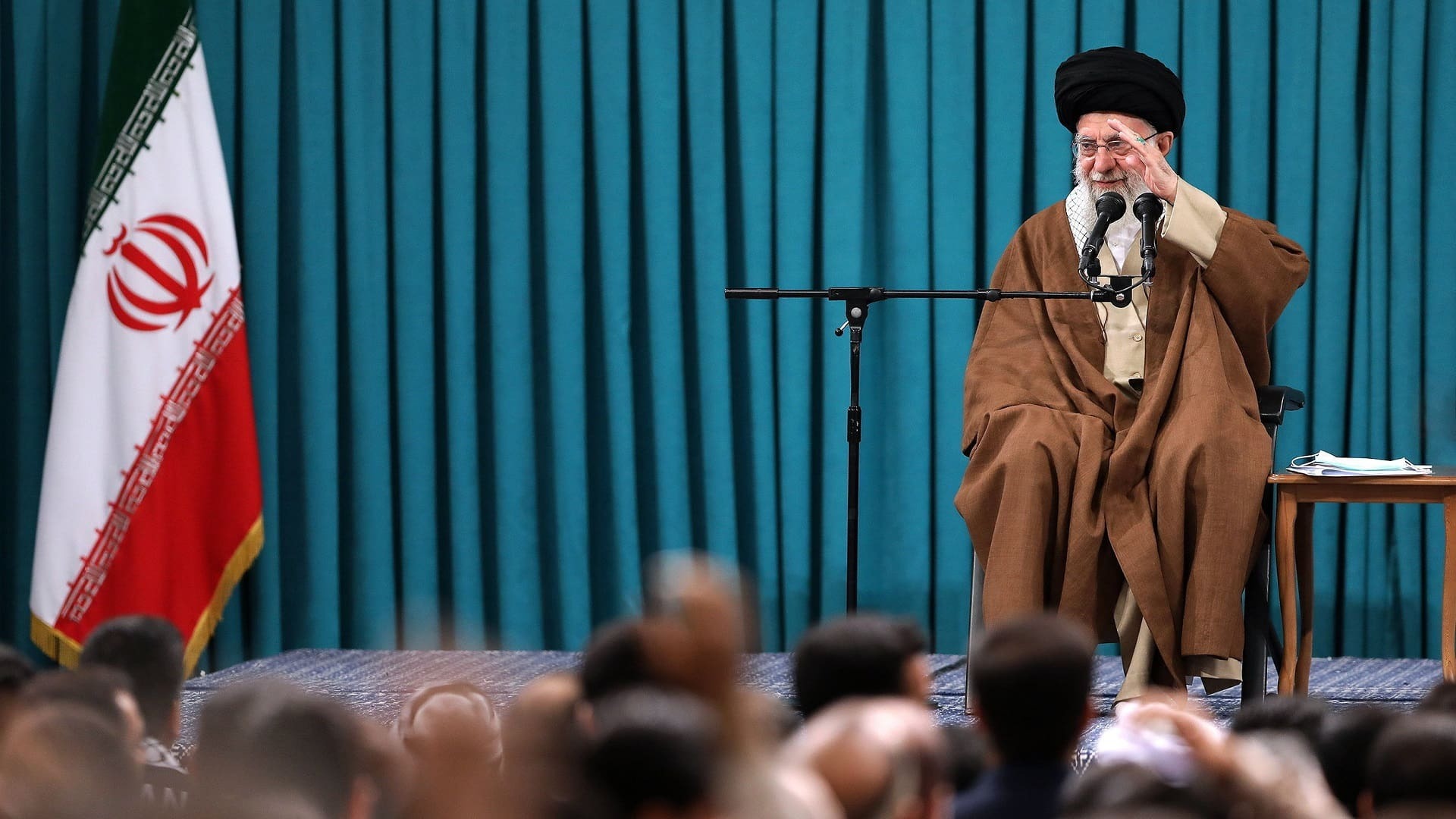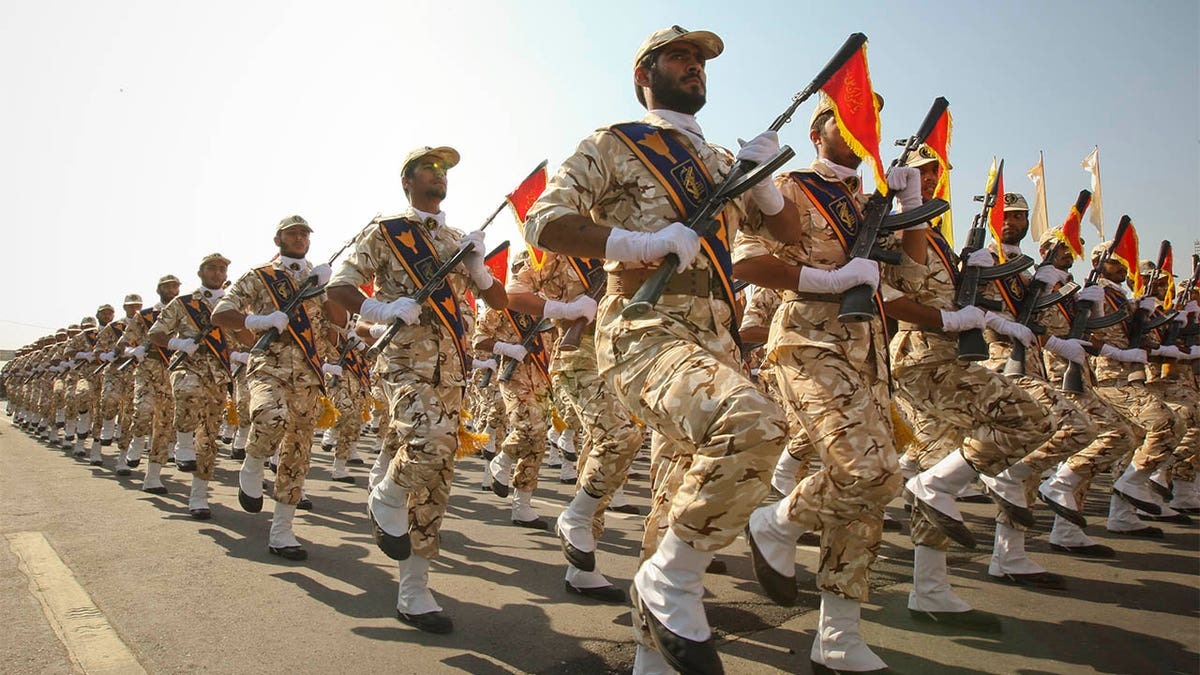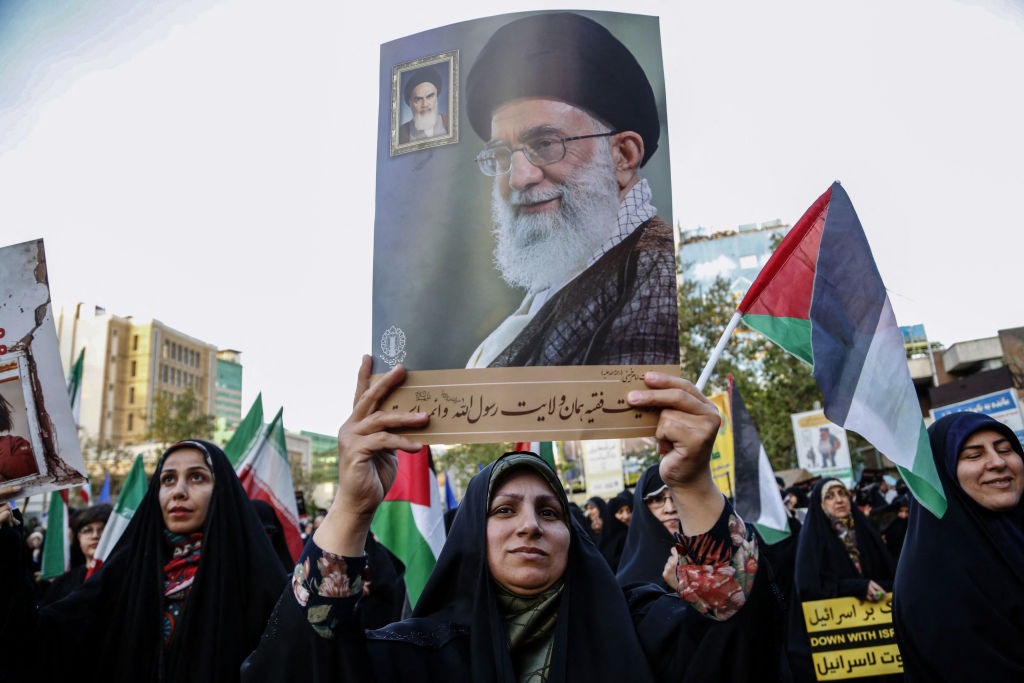The recent drone and missile attack by Iran has prompted world leaders to emphasize the importance of maintaining “regional stability.”
However, this concept of stability appears paradoxical when considering the ongoing barrage of Hezbollah rockets targeting Israeli cities, numerous attacks on commercial ships and allied navies in the Red Sea, and the deaths of three American soldiers in Jordan.
The erosion of stability in the Middle East cannot be solely attributed to the Biden administration’s credibility in deterring adversaries. It reflects the failure of decades-long efforts to establish peaceful coexistence with the Islamic Republic.
Iran has been actively engaged in exporting the Islamic Revolution and establishing regional dominance for nearly half a century. Its tactics include not only direct attacks on Israel but also targeting Americans and destabilizing Arab countries.

Time to Stop Appeasing Iran (Credits: Hungarian Conservative)
Despite efforts by successive U.S. administrations to deter Iranian aggression through economic sanctions and diplomacy, these endeavors have consistently fallen short.
Syria, Lebanon, and Yemen have been effectively reduced to Iranian client states, while Tehran holds outstanding influence in Iraq. Its expansive terrorist network enables it to target any location in the Middle East, disrupting global commerce and posing a threat to regional stability.
Iran’s arms industry has reached a level where it could potentially outpace Russia in weapon exports, indicating its growing military prowess.
The response to Iran’s aggression has primarily relied on economic sanctions, which have proven ineffective in altering its behavior.
Despite hopes that new sanctions will curb Iranian actions and appease Israel, similar measures against Russia have failed to halt its aggression in Ukraine. China’s interest in Iranian oil outweighs its commitment to deterring Iranian belligerence.
It is imperative to acknowledge that Tehran is not interested in peaceful coexistence. Attempts to moderate its behavior through economic coercion have been futile. While removing the regime might seem appealing, another regime change endeavor could prove disastrous. Instead, containing Iranian aggression requires a different approach.
The U.S. Special Operations Command, renowned for its expertise in combating clandestine networks, should focus on dismantling the Islamic Revolutionary Guard Corps (IRGC), the backbone of Iran’s “Axis of Resistance.” Targeting IRGC operatives and leaders must become a priority to instill fear and disrupt Iran’s operations.

Islamic Revolutionary Guard Corps (Credits: Fox News)
Additionally, Iran’s nuclear ambitions pose a serious threat to regional and global security. Rapid dismantling of its nuclear infrastructure, coupled with targeting its ballistic missile and drone capabilities, is essential to neutralize this threat.
While advocating for war is challenging, confronting Iran’s aggression is necessary to safeguard regional stability. President Biden must act decisively to eliminate Iran’s ability to terrorize its neighbors.
Failure to address this threat not only risks further destabilization in the Middle East but also undermines the efforts of allies striving for prosperity and peace in the region. The time for action is now.























